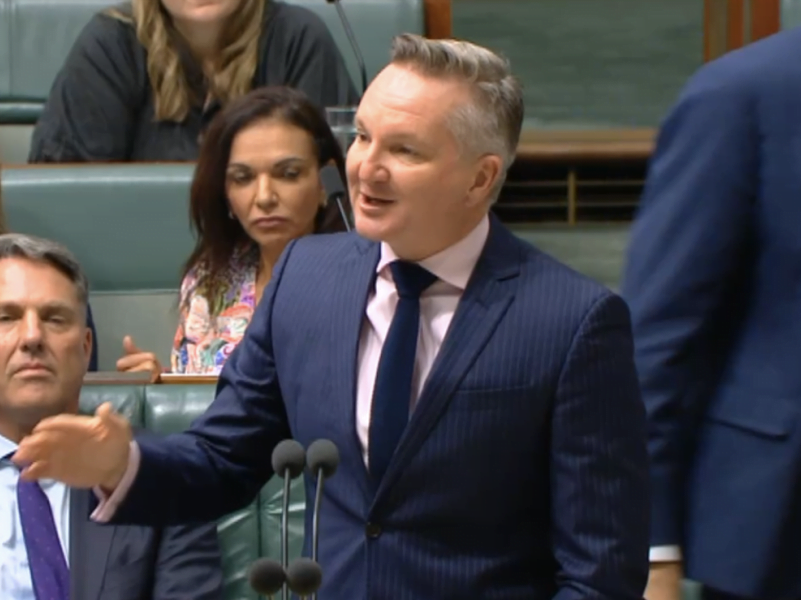Australia’s first National Electric Vehicle Strategy will introduce fuel efficiency standards and promises new recycling initiative for electric vehicles and other large batteries, but offers no new support initiatives for manufacturing.
Consultation on the technical details for fuel efficiency standards will last six weeks, with the government hoping to have the standard finalised by the end of the year and legislation to pass by next year.
The fuel efficiency standard would require manufacturers that supply new light vehicles to meet a carbon dioxide emissions per kilometre standard.
Around 85 per cent of global car sales are already subject to fuel efficiency standards, according to the International Energy Agency.
A discussion paper on fuel efficiency standards was initially expected to be released at the end of 2022.

The government also committed to undertaking research “to inform an EV and other large format battery recycling, reuse and stewardship initiative”.
While the discussion paper for the strategy, released last September, highlighted the potential to “encourage Australian manufacturing of EVs, chargers and components”, the strategy does not include initiatives to support domestic manufacturing.
Other measures in the strategy include the development of a “national mapping tool for EV charging infrastructure”, research to help inform EV uptake for residents of multi-residential buildings, and coordinating with state governments to effectively roll out EV charging across regional Australia.
Following the launch of the strategy, Mr Bowen also announced the opening of a $70 million grants round, through the Australian Renewable Energy Agency, to co-fund innovation in public charging infrastructure and management projects.
Grants of up to $15 million will be available through the program.
A foreword to the fuel efficiency standards discussion paper by Climate Change and Energy minister Chris Bowen and Transport minister Catherine King noted that Australian passenger cars “emit 40 per cent more carbon than in the European Union (EU), 20 per cent more than the United States and 15 per cent more than New Zealand” on average.
The ministers noted that Australia is the only country, besides Russia, to have not implemented fuel efficiency standards.
Director of the Australia Institute’s South Australian branch Noah Schultz-Byard said “until Australia adopts fuel efficiency standards in line with major vehicle markets like New Zealand and the EU, we will remain a dumping ground for older, dirtier and more inefficient vehicles”.
EV sales currently make up 3.8 per cent of the Australia car market. At the launch of the strategy, Mr Bowen noted that the average cost of driving an electric car is $2,000 less than a petrol vehicle although he admitted that a lot of EVs are expensive to purchase.
In a statement, Greens Leader Adam Bandt sought to highlight that the government has released a strategy with “no clear destination” by not including a target for electric vehicle uptake or a target date for the phase out of petrol and diesel cars.
“The Greens want a commitment to phase out new sales of petrol and diesel cars over this decade and fuel efficiency standards at least as strong as in Europe,” Mr Bandt said.
“It’s clear what needs to be done, but the government is keeping us in the slow lane when we should be accelerating into the future.”
Electric Vehicles Council chief executive Behyad Jafari welcomed the release of the strategy and told InnovationAus.com that the commitment to fuel efficiency standards is the most important aspect.
As opposed to an EV uptake target, Mr Jafari said fuel efficiency standards are a technology agnostic policy for achieving the same result.
He also reiterated that the standard is a “long overdue piece of regulation” since the United States has had equivalent regulations in place since 1976.
“I’d generally would have liked to see more speed on this. Given there are already standards in place in the US, Europe, New Zealand, this discussion paper asked a lot of questions that could have already have been more formed opinions by the government,” Mr Jafari said.
“Given we are here now, when we have this six-week discussion paper ahead of us, I think it’s just very important for the government to continue reiterating… that this is not something that we will just continue discussing throughout the year but we’ll actually implement.”
On manufacturing, Mr Jafari said there is more work to be done in the electric heavy vehicle despite strong ongoing activity. However, he noted that the national EV strategy shouldn’t be viewed as the final document from the federal government.
Over 500 submissions were submitted through the consultation process on the strategy, which will be reviewed in three years.
Do you know more? Contact James Riley via Email.

